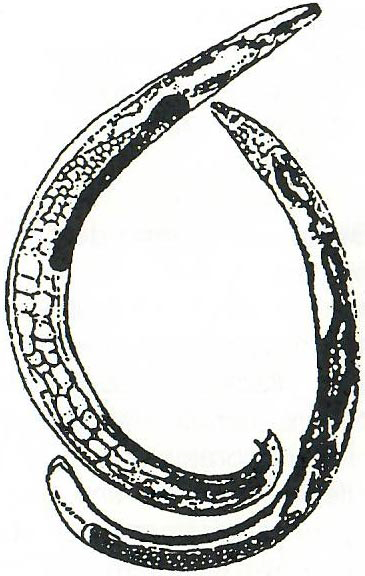
Beneficial Nematoties
Black Fly Problem?
Small black Fungus Gnats flying in front of your computer screen? Those annoying little pests! We can solve you problem with parasitic nematodes.
Beneficial Nematodes: Yes, good nematodes really do exist! These minuscule beneficials are barely visible to the naked eye as time threads. They attack only insects in moist soils or borer tunnels. Plants, earthworms, and vertebrates are completely unaffected by these tiny beasts. The major requirements for successful use are an environment that does not dry out, and appropriate application rates.
Beneficial nematodes can be supplied in a spray concentrate or a moist granular carrier. Please consult us with your particular needs.
Spider Mite Problem?
White webbing all over your plants? Dry brown look to leaves? A new generation is produces every eight days. Millions of eggs are produces by one female adult.
Spider Mite Control: An ever-increasing variety of predatory mites is available to accommodate specific environmental conditions and / or pests. The general appearance and life cycle of these mites is illustrated below. Our predatory mites are shipped in a granular suspension and can be distributed from a shaker bottle directly onto infested plants.
Predatory mites do not harm plants or humans!
Phytoseiulus persimilis is the most commonly used beneficial mite world wide. They actively seek out and consume 20 young or 5 adult spider mites per day. They quickly gain control of a spider mite outbreak.

Orius

Life Cycle – Predatory Mite
Mealy Bug Problem?
Mealy Bug Control: The citrus mealy bug is the most common species found in ornamental plantings. These mealy bugs are found on all parts of the plant, including the roots, but typically are clustered on stem tips and new growth.
Cryptolarmus montrouzieri is our predator we use here. COmmonly called the Australian lady beetle. They also feed on black scale insects and aphids.
Leptomastic dactylopii is out parasite we use in the control of the citrus mealy bug.
